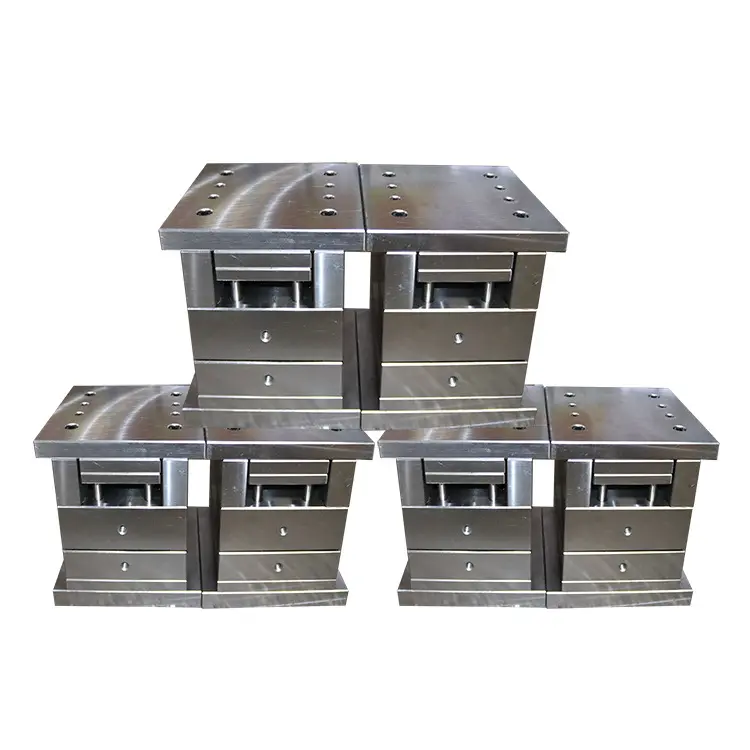In the fast-evolving landscape of Singapore's manufacturing industry, the selection of the right materials is crucial. Among these materials, mold steel plays a pivotal role in defining the quality and efficiency of production processes. This article delves into the best mold steel options available for manufacturers in Singapore, focusing on key factors such as characteristics, applications, and choice considerations.
Understanding Mold Steel
Mold steel is a specialized steel designed specifically for the fabrication of molds used in manufacturing processes, typically in injection molding, blow molding, and die casting. The right choice of mold steel can significantly affect the durability, machinability, and performance of molds. Key characteristics of mold steel include:
- Hardness: Essential for wear resistance during production.
- Toughness: Ability to absorb energy and resist cracking.
- Corrosion Resistance: Important for longevity and maintenance of molds.
- Machinability: Affects how easily the steel can be worked with during fabrication.
Types of Mold Steel
Singapore's manufacturing sector commonly utilizes various types of mold steel, each tailored for specific applications. The following table summarizes the most widely used mold steels:
| Type of Mold Steel | Key Characteristics | Best Suited For |
|---|---|---|
| P20 | Good hardness, excellent machinability, pre-hardened | Injection molds for plastics |
| H13 | High toughness, excellent thermal conductivity | Hot work applications, die casting |
| S7 | High shock resistance, good hardenability | High-impact and heavy-duty applications |
| 420 Stainless Steel | Excellent corrosion resistance | Corrosive environments, medical applications |
| D2 | High wear resistance, good edge retention | Long-lasting dies and molds |
Considerations When Selecting Mold Steel
Choosing the right mold steel for a specific application requires careful consideration of several factors, including:
- Production Volume: Higher volumes may require more wear-resistant materials.
- Complexity of Mold Design: Intricate designs may benefit from steels with better machinability.
- Cooling Requirements: Materials with good thermal conductivity are essential for molds used in heat-intensive applications.
- Environmental Factors: Consideration of factors like corrosion and wear resistance is crucial if the molds will face harsh conditions.
Applications of Mold Steel in Singapore
Singapore's manufacturing sector is diverse, ranging from electronics to automotive parts. Specific applications of mold steel include:
- Plastic Injection Molding: Used extensively in consumer goods, electronics, and automotive parts.
- Die Casting: Critical for producing metal components used in industrial machinery and automotive applications.
- Thermoforming: Involves parts manufacturing for packaging and medical products.
Advantages of High-Quality Mold Steel
Utilizing high-quality mold steel offers several advantages:
- Improved Durability: Reduces the frequency of mold repair and replacement.
- Enhanced Efficiency: Better material properties lead to faster production cycles.
- Cost-Efficiency: Long-lasting molds ultimately reduce costs associated with downtime and production loss.
Challenges and Solutions in Mold Steel Selection
While choosing mold steel, manufacturers may face various challenges:
- Cost Variability: The price of high-quality mold steel can be higher than other materials.
- Material Availability: Some grades may be difficult to source locally.
- Performance Expectations: Misaligned expectations regarding the material's performance can lead to dissatisfaction.
To overcome these challenges, manufacturers can:
- Engage with reputable suppliers who specialize in mold steel.
- Conduct a thorough analysis of production needs and material properties.
- Invest in staff training to ensure that the end-users understand the material's capabilities.
Future Trends in Mold Steel Usage
As technology evolves, the requirements for mold steel are becoming more complex. Emerging trends to watch include:
- 3D Printing: The rise of additive manufacturing may alter mold production processes.
- Smart Materials: Development of steels with embedded sensors or self-healing properties.
- Sustainability: A shift toward recyclable and environmentally friendly materials.
Conclusion
In conclusion, the choice of mold steel is a significant decision that impacts the efficiency and quality of manufacturing in Singapore. With various options like P20, H13, S7, and stainless steels available, manufacturers must carefully consider their specific needs and applications. By understanding the characteristics, advantages, and future trends in mold steel, companies can enhance their production capabilities and stay competitive in the dynamic environment of the manufacturing industry.

